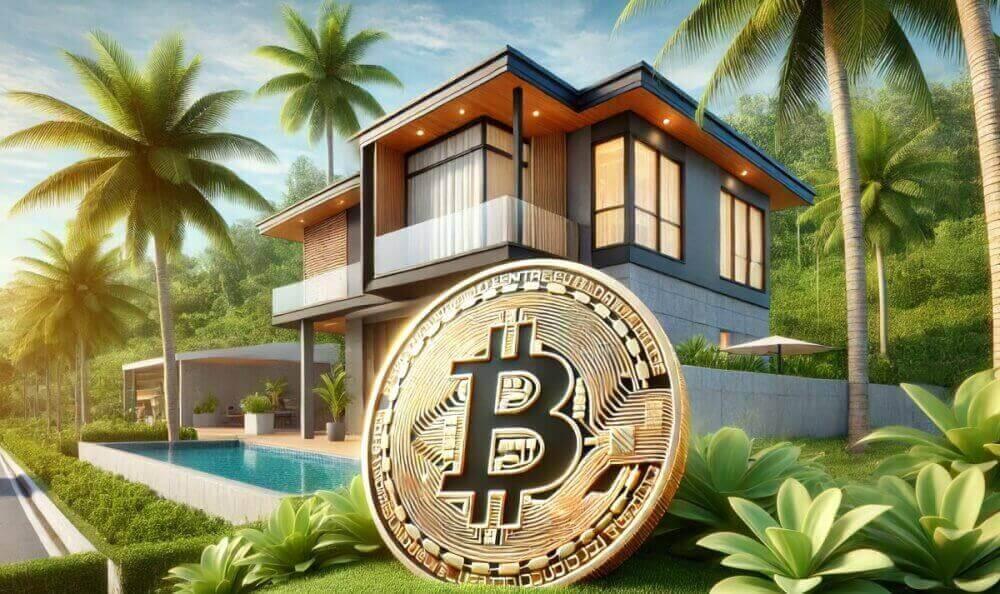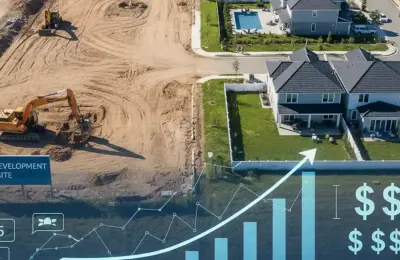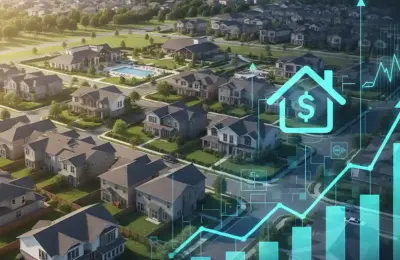
Cryptocurrency in Real Estate 2025: From Bitcoin Payments to Tokenization

Cryptocurrency and Real Estate in 2025: From Experiment to Mainstream
Just a few years ago, the idea of buying an apartment with Bitcoin sounded like science fiction. Today, in 2025, it's not just a reality—it's only one piece of a much larger transformation. Blockchain technology and digital assets are actively integrating into the real estate sector, offering new levels of speed, transparency, and accessibility.
If you're planning to buy, sell, or invest in property, understanding these trends is no longer optional—it's essential. In this article, we'll break down how cryptocurrency has reshaped the real estate market by 2025 and what to expect in the near future.
1. Payment Method: More Than Just "Bitcoin Accepted"
Initially, cryptocurrency was used primarily as an alternative payment method. A seller would list a price in dollars, and a buyer would pay the equivalent in BTC or ETH. By 2025, this model has become much more sophisticated and secure.
Stablecoins as the Foundation. The rise of stablecoins (digital currencies pegged to fiat assets like the USDT or USDC) has eliminated the main problem—volatility. Transactions can now be settled instantly without the risk of the asset's price swinging 10% during transfer times.
Legally-Sound "Crypto-Agreements." Real estate agencies and notaries have developed standardized contracts that explicitly outline the terms for cryptocurrency payments, conversion, and taxation. This has legitimized the process and removed major legal hurdles.
Instant International Deals. For developers selling properties to foreign investors, payment in crypto has become the fastest and cheapest way to receive funds, bypassing complex bank transfers and currency controls.
Example: A European investor buys an apartment in Dubai. Instead of 3-5 banking days and fees, the deal is closed in minutes via a stablecoin transfer to the developer's wallet.
2. Real Estate Tokenization: Investing "Piece by Piece"
This is arguably the most revolutionary change. Tokenization is the process of converting ownership rights of a real estate asset into digital tokens (similar to shares) that can be bought, sold, and traded.
How it works:
A real asset, such as an office building worth $5 million, is appraised, and its value is divided into 5 million tokens at $1 each. You can buy 1,000 of these tokens (for $1,000) and become a 0.02% owner of that building, entitled to a proportional share of the rental income.
The Advantages of Tokenization in 2025:
Accessibility. Investing in high-end commercial real estate is now possible with any amount of capital, starting as low as $100.
Liquidity. Selling your share (tokens) on a specialized exchange is much faster than finding a buyer for a share in a physical object. The real estate market is becoming more liquid.
Diversification. You can easily invest not in one large property, but in dozens of different ones across the globe, significantly reducing risk.
3. Smart Contracts and NFT Deeds: The Future of Legal Transactions
Blockchain isn't just about money; it's about data. Smart contracts are self-executing contracts with the terms of the agreement directly written into code.
In real estate, this looks like:
The buyer and seller sign an agreement, which is "uploaded" into a smart contract in the form of an NFT (Non-Fungible Token). This NFT acts as a digital deed.
The buyer "locks" the funds (stablecoins) in the smart contract.
Once the registrar records the change of ownership in the land registry (which is increasingly also blockchain-based), the smart contract automatically releases the funds to the seller, and the NFT deed is transferred to the buyer's digital wallet.
The Result: No paper, no delays at the notary for fund transfers, and zero risk of fraud. The entire history of the property (past transactions, renovations, leases) is transparently stored in the "history" of this NFT.
4. DeFi Mortgages: Borrowing Without Traditional Banks
Blockchain-based financing (Decentralized Finance, or DeFi) is opening new doors for obtaining mortgages.
Instead of going to a bank, you can:
Use your crypto assets as collateral. You lock your Bitcoin or Ethereum in a special DeFi protocol and receive a loan in stablecoins for a down payment or full purchase. Your crypto assets remain yours and can appreciate in value, while you use their liquidity.
Get better rates. Due to competition among thousands of lenders in decentralized protocols, interest rates are often more favorable than those offered by traditional banks.
Challenges and Risks That Remain in 2025
While the technology is advancing, challenges persist:
Regulation. Although legislation is evolving rapidly, it varies dramatically from country to country. Thorough research of local laws is crucial.
Volatility. Stablecoins have mitigated this risk, but it hasn't disappeared entirely. Classic cryptocurrencies (BTC, ETH) can still experience sharp price swings.
Cybersecurity. Losing access to your crypto wallet through lost keys or hacker activity can mean a total loss of funds. High technological literacy and secure storage systems are non-negotiable.
Mass Adoption Hurdle. Despite progress, the majority of ordinary buyers and sellers still prefer traditional methods.
Conclusion: What Should You Do Now?
The real estate market in 2025 is a hybrid space where traditional institutions coexist peacefully with innovative technologies.
If you are a buyer/investor:
Educate yourself. Understanding blockchain basics is becoming a competitive advantage.
Consider tokenization as a way to diversify your real estate portfolio with minimal investment.
Consult with lawyers who specialize in crypto-real estate transactions.
If you are a seller/developer:
Consider accepting cryptocurrencies (especially stablecoins) as a way to attract more investors, particularly from abroad.
Explore the possibilities of tokenizing your projects for faster capital raising.
The future of real estate is transparent, fast, and accessible transactions built on blockchain technology. And in 2025, that future has already arrived. The only question is, are you ready to join it?
Homenly.com — your guide in the modern world of real estate. We help you understand the trends and find the perfect option, whether it's a traditional deal or an innovative crypto purchase.
News insight
 Nov 18, 2025
Nov 18, 2025
Property Developer Earnings in the US Market: A Comprehensive Overview
Explore how US property developers earn money. Learn about profit margins (Residential vs. Commercia...
 Nov 18, 2025
Nov 18, 2025
What Is a Build-to-Rent (BTR) Development?
Discover what a Build-to-Rent (BTR) development is. Learn about this growing real estate model, its...
 Nov 17, 2025
Nov 17, 2025
Build-to-Rent: Transforming America's Housing Landscape
Explore how the Build-to-Rent (BTR) model is transforming the US housing market. Learn why instituti...
